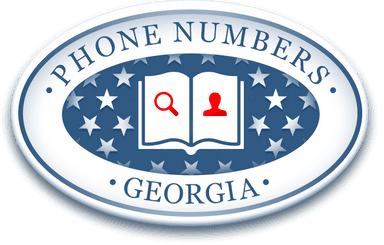Where is Area Code 470?
Area Code 470 primarily serves regions in Georgia, covering a series of major metropolitan and suburban areas. It operates largely within the Greater Atlanta region, ensuring local telephone service for both businesses and residents. The primary localities under the 470 code include:
• Atlanta (and surrounding suburban communities)
• Gwinnett County
• Clayton County
• DeKalb County
• Cobb County
The coverage area extends into additional pockets within the state, connecting suburban and emerging commercial sectors. This approach ensures adequate numbering resources to accommodate local growth. For more data regarding area code assignments, please consult the North American Numbering Plan Administrator.
The Georgia Public Service Commission, located at 244 Washington Street SW, Atlanta, GA 30334, holds authority over the administration and regulation of telecommunication services within Georgia’s borders. Individuals and businesses within the 470 area code may contact the Commission for official guidance or to discuss service-related issues.
What time zone is 470 area code in the USA?
The 470 area code follows the Eastern Time Zone (ET). This designation includes observance of Daylight Saving Time, meaning local clocks shift forward an hour in the spring and revert to standard time in the fall.
• Standard Time: Eastern Standard Time (EST)-UTC-5
• Daylight Saving Time: Eastern Daylight Time (EDT)-UTC-4
Residents and visitors to the 470 region should note these time shifts when scheduling international or cross-country communication. Government agencies, such as the U.S. Naval Observatory, provide official notifications regarding time changes and can offer further guidance on DST protocols.
History of the 470 Area Code
Area Code 470 was established as part of an overlay plan to meet the increasing demand for telephone numbers brought about by rapid population growth and expanded mobile usage. The initial introduction of 470 took place in 2010, at a time when the existing 404, 678, and 770 area codes faced exhaustion of available phone numbers.
Key historical facts:
• Year Created: 2010
• Method: Implemented as an overlay rather than a geographic split
• Reason: Growth in mobile lines, business expansions, and consumer demand
Before the overlay, individuals in the Atlanta metropolitan area relied heavily on existing codes. Overlays like 470 allowed new phone numbers to be assigned without requiring existing customers to change their phone numbers. The Federal Communications Commission (FCC), located at 45 L Street NE, Washington, DC 20554, oversees the awarding and regulation of new area codes. Official guidance on these processes is provided under the FCC area code assignment directives.
How Many People Use the 470 Area Code?
Estimates indicate that tens of thousands of individual subscribers utilize 470 numbers for residential, commercial, and cellular services. This broad user base parallels the broader metropolitan Atlanta population, which has witnessed significant increases over the past decade.
State and federal agencies closely observe the area code’s capacity. When resources approach depletion, the Georgia Public Service Commission or the National Number Pooling Program may undertake additional steps such as introducing new overlays or adjusting existing plans.
Is the 470 Area Code Toll-Free?
The 470 area code is not classified as toll-free. Rather, it is a geographic area code applied to a specific region within Georgia. Calls made to or from numbers with the 470 prefix generally follow standard local and long-distance billing practices. Here are some important aspects to remember:
• Geographic vs. Toll-Free: 470 is tied to the Atlanta metro region; it is not part of toll-free codes such as 800, 888, 877, or others.
• Billing Implications: Charges for calling 470 from outside the local calling area might apply, depending on the caller’s long-distance plan.
• Special Rules: Within local exchanges, many landline or mobile carriers offer free local minutes. Businesses, meanwhile, may select unlimited call packages so that customers do not incur charges when calling from inside the United States.
For additional details regarding local billing rules, consult the Georgia Public Service Commission’s phone service regulations. Local phone carriers may also provide updated calling plans to reflect the region’s rapid telecom expansion.
